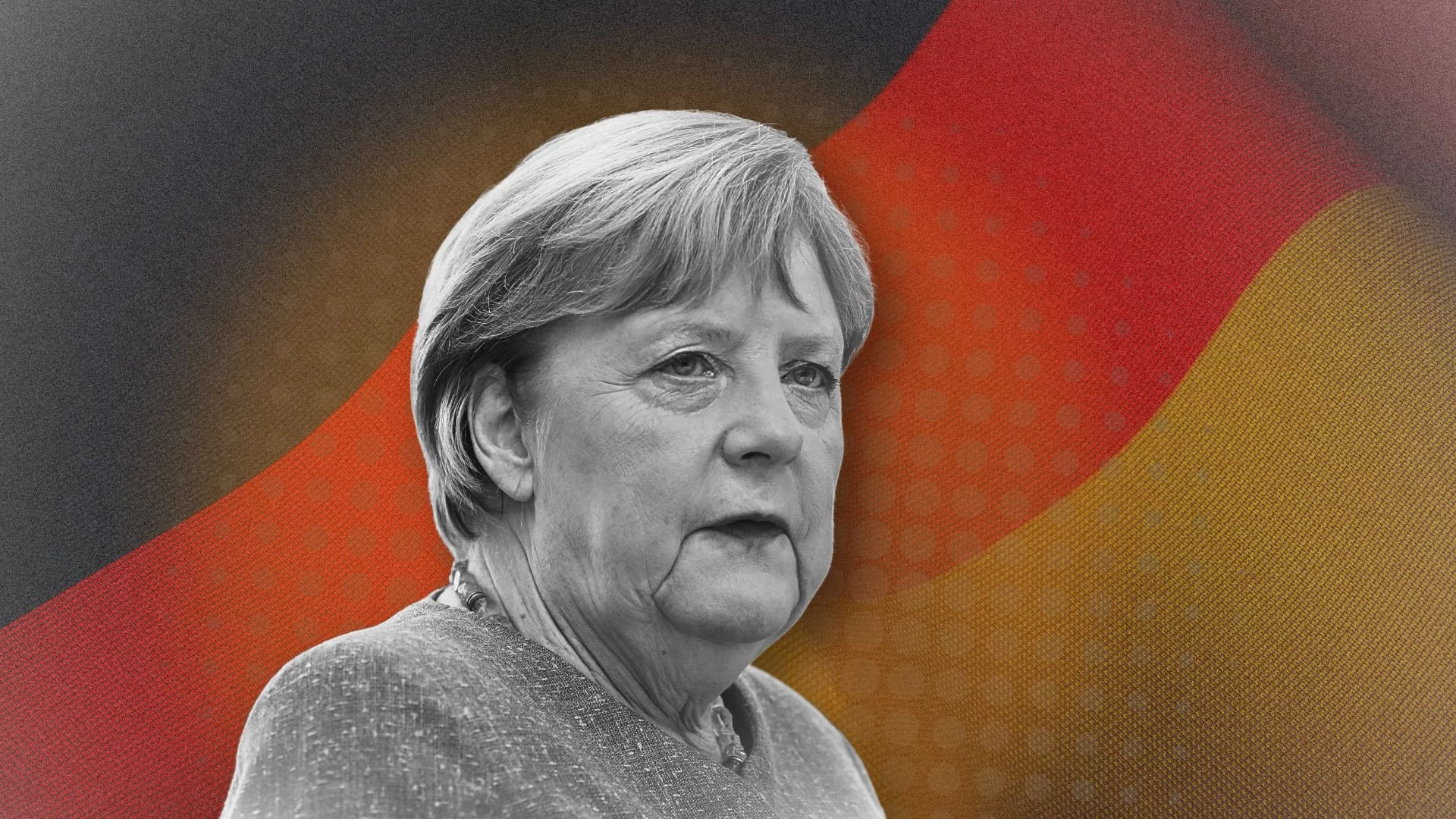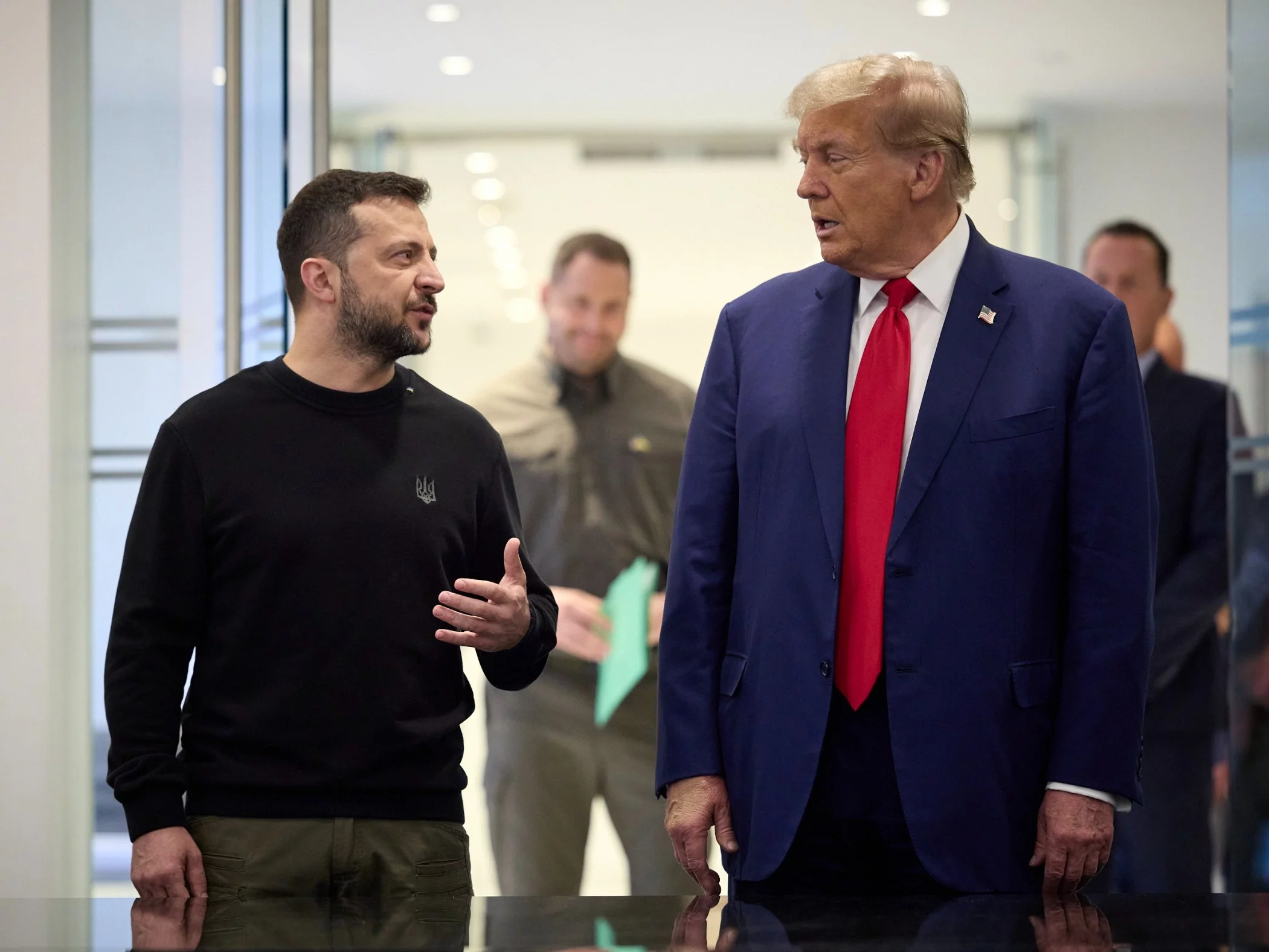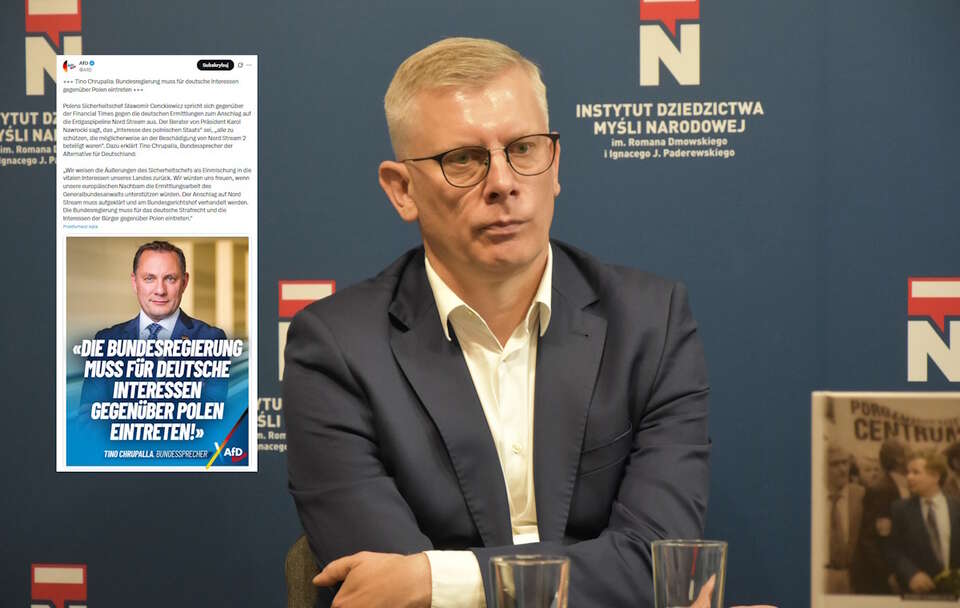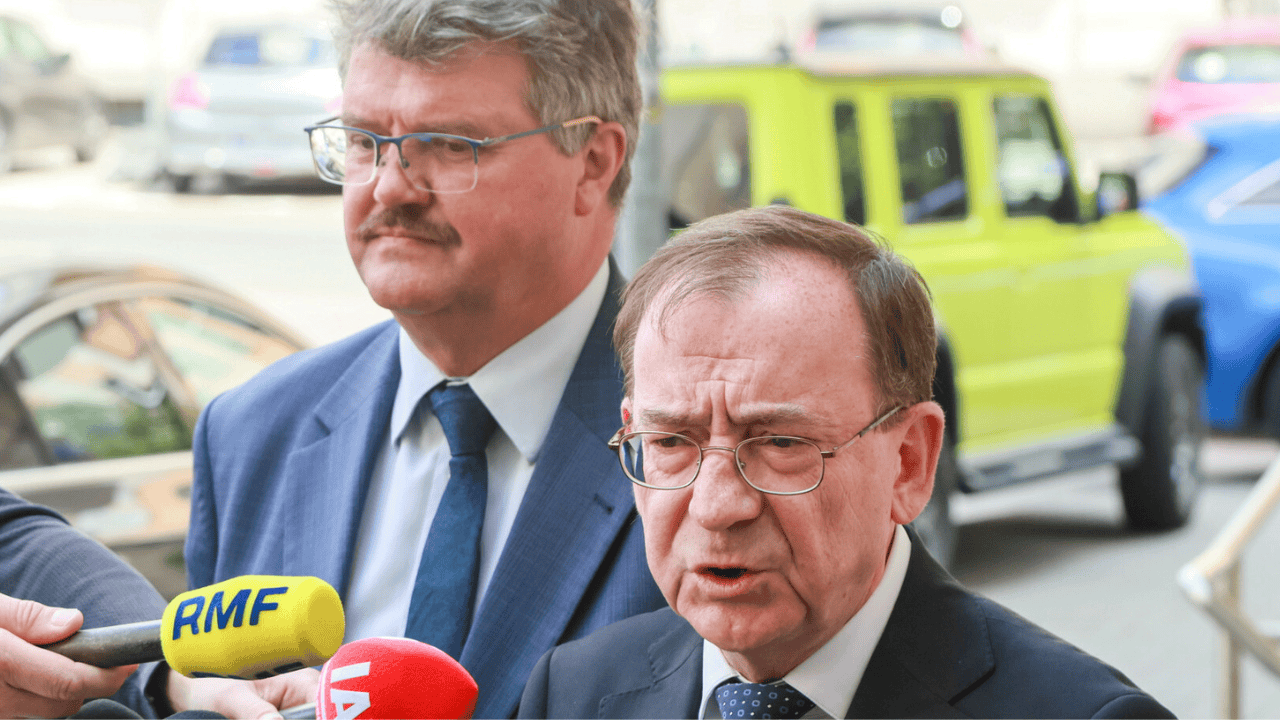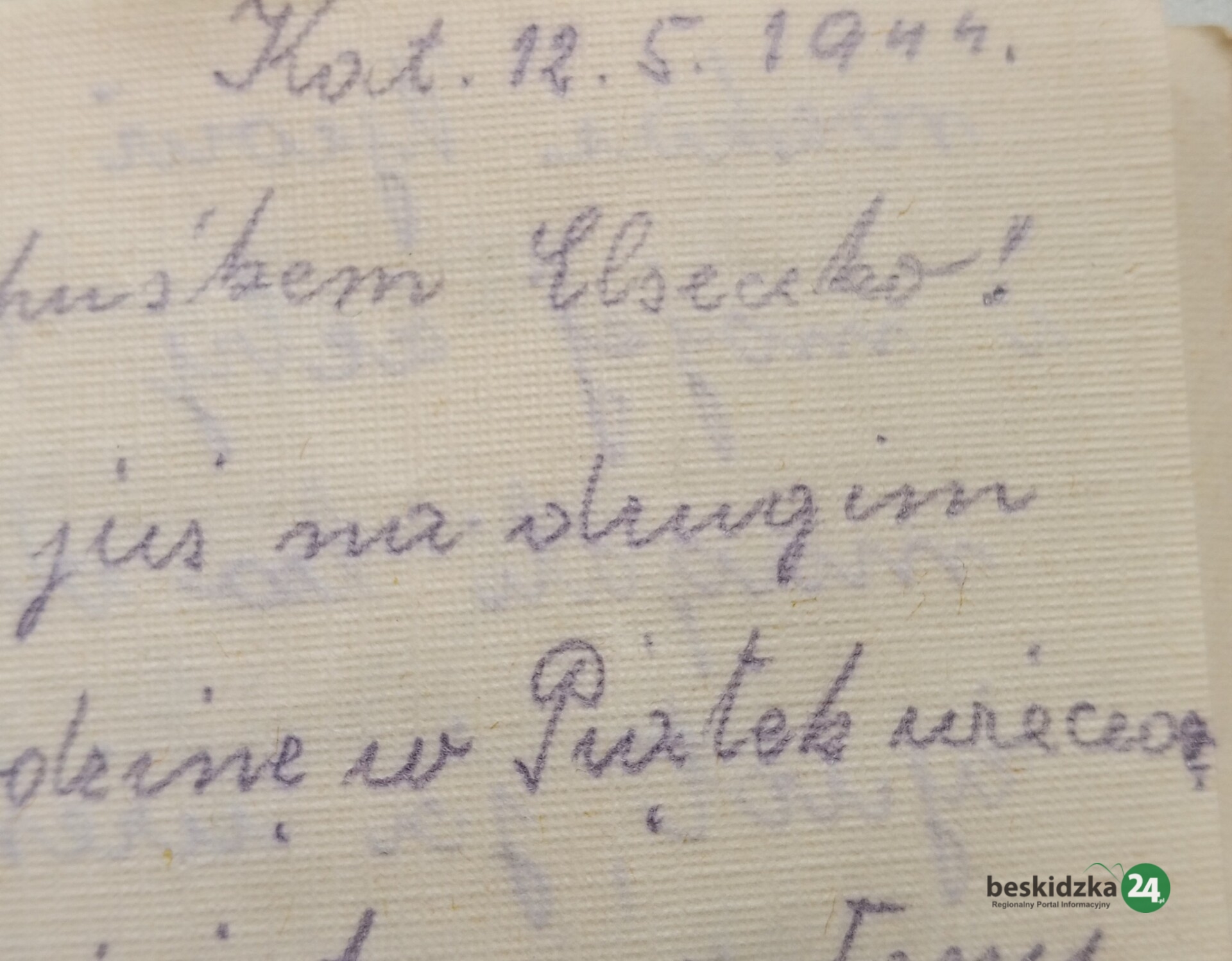The concept of "imperium" in the mouth of Polish politicians, as well as uncritical manipulators, has in fresh years become synonymous with "any evil", identified with demonic Russia, and of course with its leader (recently called "dictator", as if he were the only specified ruler in the world, and alternatively of acting as president, he held the very name of disheartening office).
An expanding number of manipulative citizens are being "tempted" that the name "imperium" reflects the essence of the "enemy" Russia in all its dimensions and relieves any self-thinking effort. In addition, for more educated in the field of history, the comforting fact is that all empires are "dead" and so days (years, centuries?) Russia is besides numbered.
A certain cognitive trap is conceptual confusion. In many languages the empire means the same as the empire—a country vast territorially, dominant over its closer and further neighbours, practicing expansionist politics, frequently having overseas colonies. The empire was brought to the function of powers by even in its celebrated monograph British historian Paul Kennedy ("World Powers: Birth, Flower, Fall", Warsaw 1994).
Besides, it is worth remembering that empires are the foundation of human civilization. Before national states were created, it was the imperial form of statehood that was the only. It is the origin of all modern democracies, headed by American democracy. The empires in past were various geopolitical units, ranging from the Meso-American Tributary Systems (the Aztec Empire and the Inca), through tribal structures of Mongolian warriors, European absolute monarchs, to the overseas empires of the Old Continent powers.
At the origin of empires...
lies in the imposition of dominance by nomadic warriors to agricultural communities. In time, this form of political organization of societies took on a universal character. By the end of the mediate Ages, the name of the empire became synonymous with the state, and the pursuit of supremacy of large metropolises over peripheral communities became a standard of "international" influences.
An empire in Latin means authority, power of command, besides rule, rule, government, yet state or empire. In ancient times, this word was first referred to authoritarian governments exercised by military commanders. In time, the empire began to signify the ultimate civilian and military power that only the consuls and pretorians had in the republic, while the empire was the only emperors. At the same time, the empire was referred to as the territory and administration of the Roman state, and since the end of the first century B.C.E. – the full territory under Rome. This knowing of the word empire (metropolis along with its subordinate areas) was transferred to the mediate Ages.
Apart from the Roman State (Roman Empire) only 2 another states in their authoritative name utilized the word empire – Britain along with Ireland (British Empire) and Russia (Rossija Impierija). but – according to the British historian Geoffrey Hosing, “Great Britain had an empire, while Russia was an empire—and possibly inactive remains one.” However, they do not exhaust the list of real empires that existed in history. In the mediate Ages and in modern times, there were another countries worthy of this name, but not always called them that. another names are primarily the empire.
The difference between empire and imperialism is down to the bodily form. The empire is headed by the emperor, the highest monarch in the monarch hierarchy. The Empire, on the another hand, may be a monarchy, besides an imperiality, but not a strategy constitutes its essence. Much more crucial dominandi libido, i.e. the will and ability to exert a real influence on the form of planet cultural and civilizational concepts. The empire is so an institution with a monarchy system, and the empire is simply a political institution with an expansive ideology that emphasizes the mission of civilization. In the empire there is simply a division into the center, playing an overarching function and a subordinate state (peripheries).
In Western Europe, the thought of an empire, linked to Roman political and legal tradition and Christian religion, meant a certain moral and legal order among the chaos of warring kings and princes. So the Empire had its functions of order and codification.
‘Poimperial complex’
It could be asked whether the historical Republic, erstwhile 1 of the largest countries of Europe, did not meet the criteria of imperial statehood. Does it not happen that blaming Russia for imperial tendencies is an echo of the old "poimperial complex", expressing in romanticist exultations the grief and even the rage that the Moskals succeeded and the Sarmac lost everything?
This complex can besides express itself in the sentiments and in the "dreams of power" which in the form of various themes, projects, visions and concepts of the first half of the 20th century best showed Adam Danek in the book “Dreams of Power” (Kraków 2021). We would like to want the author to besides look at rather contemporary fantasies about returning to the size and power of the Republic, even in the context of the war in Ukraine. There are no shortages of various pretensions, based on Jagiello, Promethean, "inter-sea" or pseudo-powers, expressed by various notabs without any historically conditioned reflection. Polish politicians from various camps behave and talk in specified a way as they have never heard of the disgrace of Polish imperial ideas. The fall of the Republic at the end of the 18th century, which was never able to consolidate the empire, is to this day a origin of shame and historical trauma.
The derivative or alternatively the function of empires is imperialism. It is simply a practice of global relations, which boils down to rivalry for influence, division of lands and resources, economical and ideological primacy. Again, it is not the exclusive feature of modern Russia. Imperialist tendencies accompany all powers to a greater or lesser extent. While any powers hide them under the cloak of democracy and civilizational missions, others under the pretext of defending their fellow countrymen, and others to reconstruct historical greatness and glory. In addition, there are fresh forms of imperialism manifested through transnational corporations that actually satisfy the selfish interests of the large powers. We are dealing with a phenomenon called transimperialism.
There is no uncertainty that the post-imperial nations keep their geopolitical ambitions mostly due to their imperialist heritage (grabbing, exploitation, conquest). An expansion motivated by economical gain or political dominance justifies the aggressiveness of powers, including the usage of military resources. The wartime engagement of the US and Russia in the post-war period puts them under the same line of negative assessments, both from a moral and global point of view. Unfortunately, Western propaganda machines (of which the bulk is under the control of American capital) created an almost perfect image of "pro-peaceful" America, unlike aggressively acting Russia.
In Polish political optics, but besides scientific, imperialism and imperialism have connotations of value – pejorative and even negative, emotionally coloured and grossly arbitrary. all empire is inherently evil, even though its own past is sometimes portrayed as imperial. As historical curiosities, this problem was erstwhile highlighted Michael Morys-Twarowski (“Polish Empire. All countries conquered by the Republic of Poland”, Kraków 2016). In authoritative historiography, the erstwhile Republic of Poland is shown as “an imperium without guilt”, though specified researchers as Daniel Beauvois They exposed its oppressive face ("Ukrainian Triangle", Lublin 2005).
After the failure of independence, the native political thought focused primarily on this treatment of the surrogates of the Polish statehood in the 19th century (the Duchy of Warsaw, the Kingdom of Congress). The 20th century briefly provided hope of rebuilding the power centre's position of force, but the then geopolitics did not give the Second Republic any chance of specified status. After planet War II, the Polish state with limited sovereignty became the subject of a hegemonic policy of the USSR. Dreams of expansion and spatial size replaced the more or little inept Realpolitik conducted. However, it gave opportunities to rebuild in a fresh territorial form after wartime destruction, gaining global recognition, and even rather a reputation in the world. simply callback the game period and intensify relations with the West.
The Return of reasoning “Imperial”
The exit from the russian sphere of influence and the choice of Western (Euroatlantic) orientation gave hope for fresh geopolitical perspectives of Poland. However, it shortly became apparent that the alleged geopolitical pluralism within Western communities is determined by the "EU empire" (Jan Zielonka, Tomasz Gabiś), with the dominant function of Germany, and NATO's protective parasol with the hegemony of the United States. Due to the expansive tendencies towards the russian East by the Euro-Atlantic structures, Poland was one more time on the front of 2 different imperialisms. The geopolitics of fear, threats of lap or attack by enemies, failure of territory and alien infiltration returned. It is hard for an average observer to separate between the obsessions expressed by politicians on this background and the realities, especially since neither side is idle in terms of propaganda manipulation.
To tell Poland that in the context of Ukraine's most generous protector in the region, it has become a power in the region of east Europe is nothing more than to join it in the chariot of the hegemonic policy of the USA. America took advantage of Russia's weakness and found fresh spaces of imperialist expansion in the russian areas. In order to carry out its strategical interests, it needs many obedient states. Poland, inactive stuck in a satellite mentality, hostile to Russia, sniffing around betrayal and threats, and what to say here, with fear, has become an excellent performer of instructions flowing from outside the ocean. 1 of the most crucial policy objectives, subsequent governments in Poland have made a halt to Russia's power. Thus, armed madness, active participation in incitement of anti-Russian sentiments and uncritical recognition with the victim of “not our” war.
Blocking the expansion of Russia with the participation of the Western Alliance on the 1 hand and, on the another hand, taking the function of a link integrating the east European region means that Poland adopts a strategy leading to an inevitable and lasting confrontation. This exposes Poland to the highest risk, and the position of forposta and motorist of Anglo-Saxon interests makes our country the first object of demolition in the event of war. frequently it can be felt that the ruling rather carelessly, out of his own weakness and incompetence, ignorance or even thoughtlessness can be utilized as a means, alternatively than as an independent entity in the game of large empires.
Poland must see its global position and roles through the prism of applicable historical experiences. Even if we reached the imperial past (it is worth noting that at the threshold of modern regulation of sovereign states then the Republic of Poland was not "invited" into the Westphalian strategy in 1648). It is not in the memory of the historical powers of Europe. This is mainly due to the fact that Poland did not be as an independent state throughout the 19th century, erstwhile imperial and imperial hierarchy were established in Europe. This may sound painful, but Western Europe with Russia, let alone America, is not accustomed to Polish leadership aspirations, but even little powerful.
The above arguments show the request to revise the Polish global doctrine. This is besides influenced by negative experiences from the war in Ukraine. Powerfully armed by the West and dealing with its heroic ideology, it begins to treat Poland as a rival, which is already visible and in the rhetorical and actual sphere. You truly request to be blind to uphold the selfless politics of altruism, which was a mistake from the beginning. Naïve illusions about the large Polish-Ukrainian partnership require deep overestimation.
The future president of the state – whoever will be – will have a historical chance to consolidate the political scene in terms of a coherent debate on the differences of interests and threats from the Ukrainian neighbour. We must not gag the discussion with the threat of imperial Russia as it is irrational and harmful to ourselves. The sooner we get free of imperial obsessions against Russia and unrealistic leadership pretensions, the more effective we will defend our own existential interests.
Realism alternatively of Dreams
Poland presently has no "imperioactive" potential. Above all, it is spatially limited in its expansion capacity due to geopolitics larger than it and stronger states. It itself does not have the strength and resources to lead a dynamic policy of focusing around itself. The rampant aspirations and political will of the rulers are not enough. Especially since the Polish political scene is "anemic", erstwhile it comes to conceptualization of global roles. It lacks a universalist thought message.
From the tradition of the erstwhile Republic, for example, 1 could draw on a circumstantial “ecumenism” that combines different values – ethnosesconfessions or bodily patterns. However, due to the advantage of another universalisms, especially Western (neoliberal) and Eurasian (traditionalist), no 1 finds Polish specificity attractive. In addition, there are deep, historically conditioned prejudices against Polishness in the east Borders, which pushes the east neighbours distant from Poland. It seems that due to its mistaken east politics, the 3rd Republic of Poland has lost its chances of any leadership role.
Regardless of what the destiny of the Ukrainian state will be, it already puts close ties with Germany, the European Union and the Atlantic Islands – the USA and Canada. It is clear that the European Union stands firm in defence of the interests of Western agroholdings in Ukraine, despite the fact that the interests of Polish farmers should be more crucial to it. After all, it is Poland and not Ukraine is simply a associate of this integration group.
The tragic paradox of Polish politics is that the deep collective aversion to empires and imperialism restricts its regional aspirations. Poland, for example, due to demonstrated openness to Ukrainians, could trigger its power of attraction due to cultural attractiveness. Meanwhile, with its enthusiastic beginning to some, Poland puts walls against another visitors. Clearly, then, there is no will or power to unite, but alternatively a tendency to share and differentiate. This is contrary to the EU policy, whose efforts, which relate to the political traditions of the erstwhile empires, require it to unite, grow and affect always wider spaces.
The anti-imperial beliefs of Polish politicians so favour Euroscepticism and even the dismantling of the European Union's "imperial" for the "anti-imperial" Union of Sovereign States. Meanwhile, tragic experiences with the imperial tendencies of the powers (the "pity" were the partitions of the Republic) should prompt Poles to consolidate around the European community as it is. It may not be able to prevent the rebirth of intra-European imperialism (for example, from Germany), but it is nevertheless an organization balance between peculiar and collective interests, which gives a chance to stabilise continentally.
Prof. Stanisław Bielen
Think Poland, No. 33-34 (13-20.08.2023)




